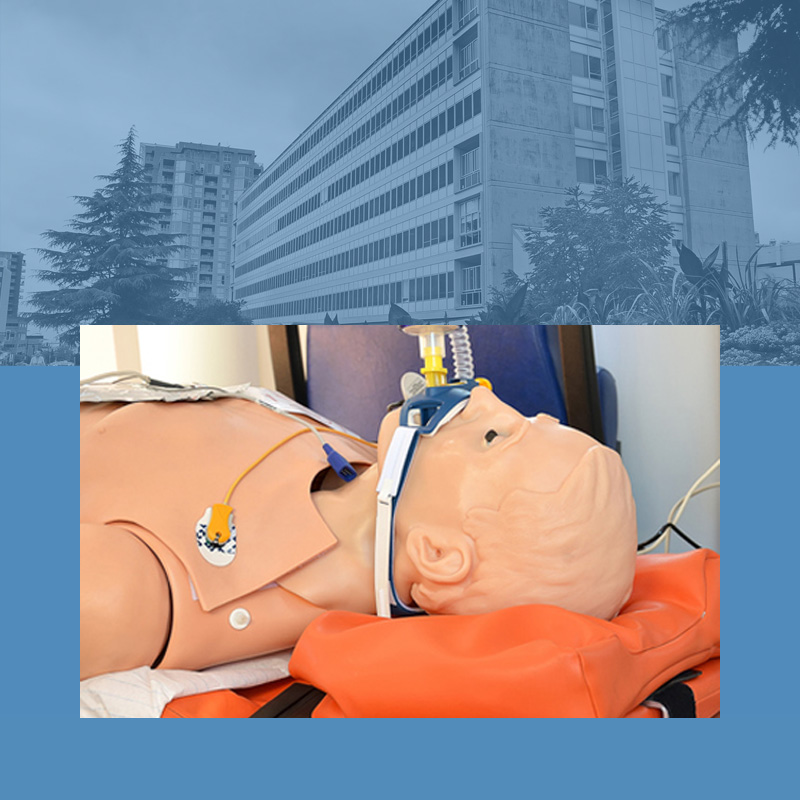
Emergency physician Dr Shannon Chestnut, Medical Lead of the Coastal Simulation Program, credits its success to Facility Engagement funding that has allowed for physician planning and participation in interdisciplinary, interdepartmental simulation events since 2017.
Success factors
Facility Engagement has supported the process of getting physician buy-in, creating courses to train facilitators, and arranging for sessional time for physicians to teach, and to participate in simulation scenarios themselves.
Physicians train with other medical staff as a team, and as a key success factor, health authority leaders additionally support nursing and other allied health to attend to involve all team members.
A Vancouver Coastal Health (VCH) regional simulation representative has also enabled access to data to evaluate the success and impact of the program, which helps to support funding requests from the hospital foundation for equipment.
How the simulations work
Simulations are practiced in the locations that scenarios could occur, allowing teams to work through potential real-time issues in the clinical space, and with access to daily supplies and team dynamics – a difference from the classic model where teams train solely in the simulation lab.
As an example of the continued growth and innovation in simulations, BC Ambulance is now working closely with the LGH Emergency Team to improve and enhance patient handover protocols. The hospital, ICBC, BC Ambulance, RCMP, and a local high school have simulated a car accident, allowing them to discuss emergency, hospital and community care responses.
Physicians are also engaging with the North Shore Search and Rescue team to learn and work through interfaces with the health authority, hospital, and community in different ways.
Dr Chestnut celebrates the ability to work and train together as a means to build an effective team, and increase resilience. She has no doubt this work saves lives with countless stories of practicing scenarios that has teams well-prepared for when they will inevitably occur.
“Facility Engagement supporting simulation has been a model for programs across the Coastal Community of Care with Whistler, Squamish, Sechelt and Powell River all using Facility Engagement funding to help support their growing programs. The impact of the program has been profound for both the teams that participates as well as patient care and morale.” – Dr Shannon Chestnut
"I have seen this program help health care providers and teams grow, vastly improving team dynamics, facilitating the incorporation of new workflows and protocols, and giving participants the confidence to manage sick and unstable patients. Simulation training at Lions Gate Hospital has proven to be an indispensable resource, setting the bar for other centres in the region." – Dr. Erik Jaegar, Emergency Room physician
“We have been holding monthly simulations of perioperative emergencies in the operating room. It allows us to review the medical management of medical emergencies which are not common in the operating room, while involving the rest of the team in the management of these challenging problems. Our staff appreciate the ability to share their thoughts in a non-threatening debrief. It is an amazing exercise for team building.
Simulation has proven to be an extremely powerful tool to generate change in our operating room procedures. We have made numerous changes to our procedures, equipment, equipment storage, and personnel deployment subsequent to simulation and debrief.” – Dr. Rob Fingland, Anesthesia and ICU physician
Resource
![]()
 |
 |
 |
